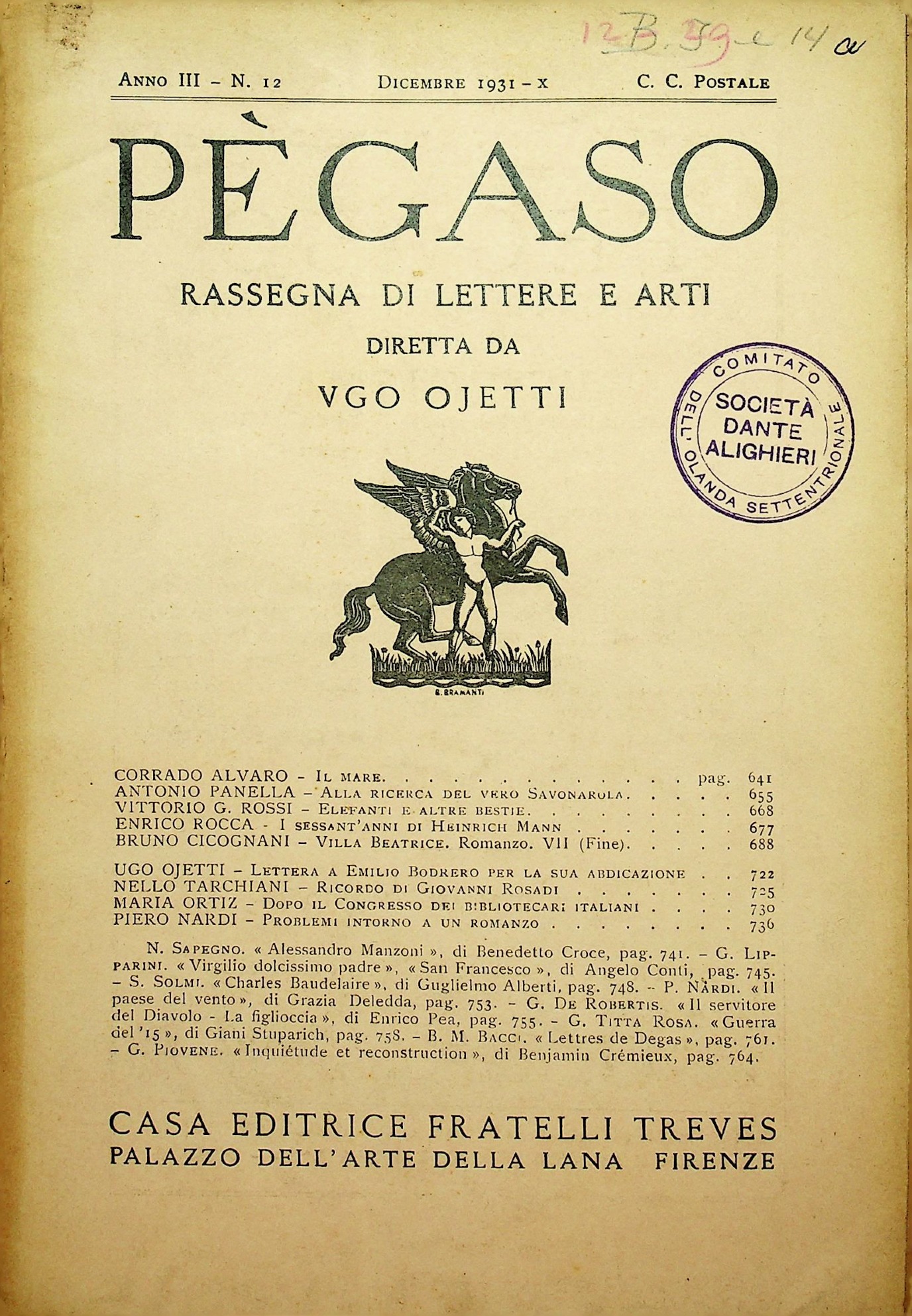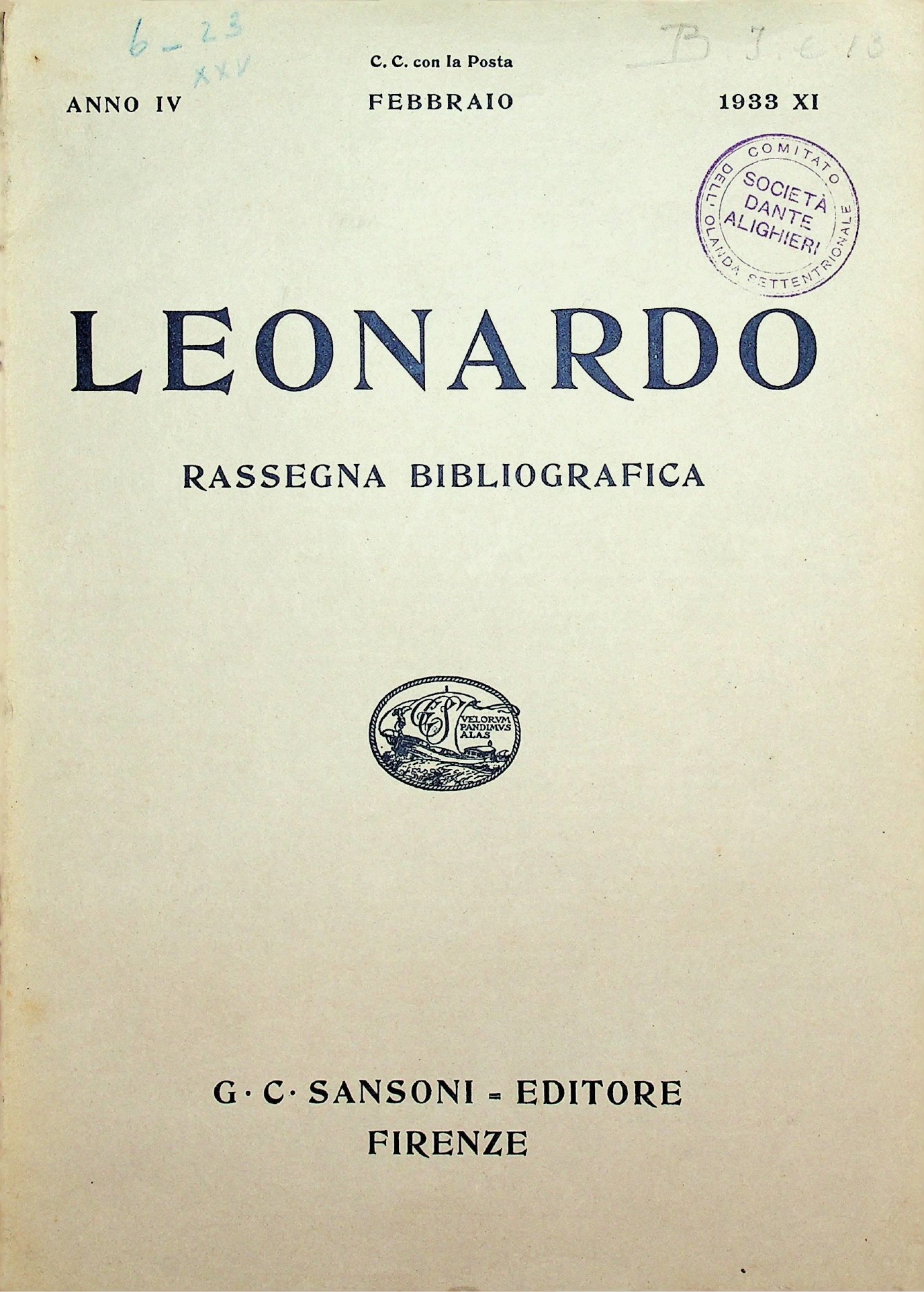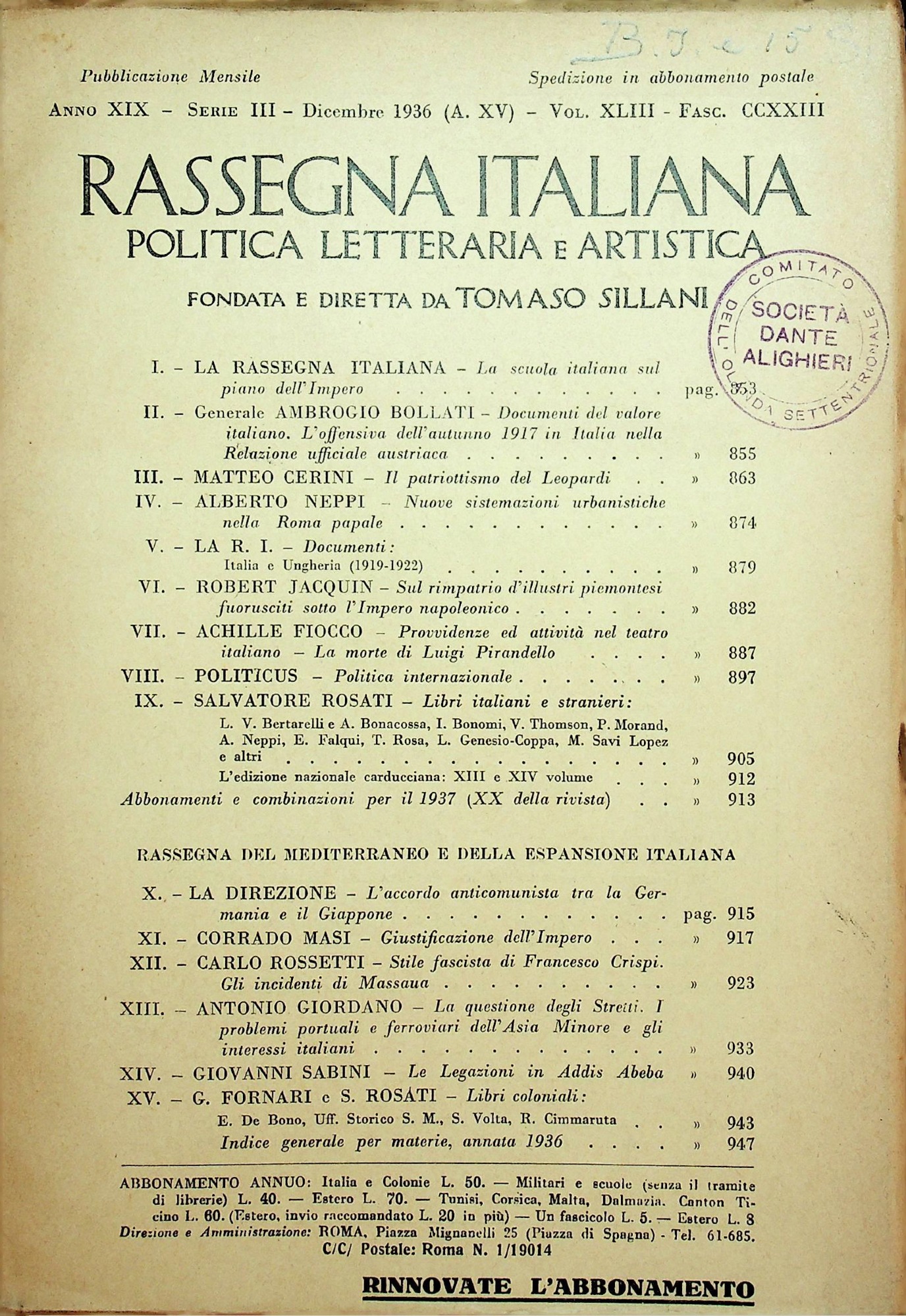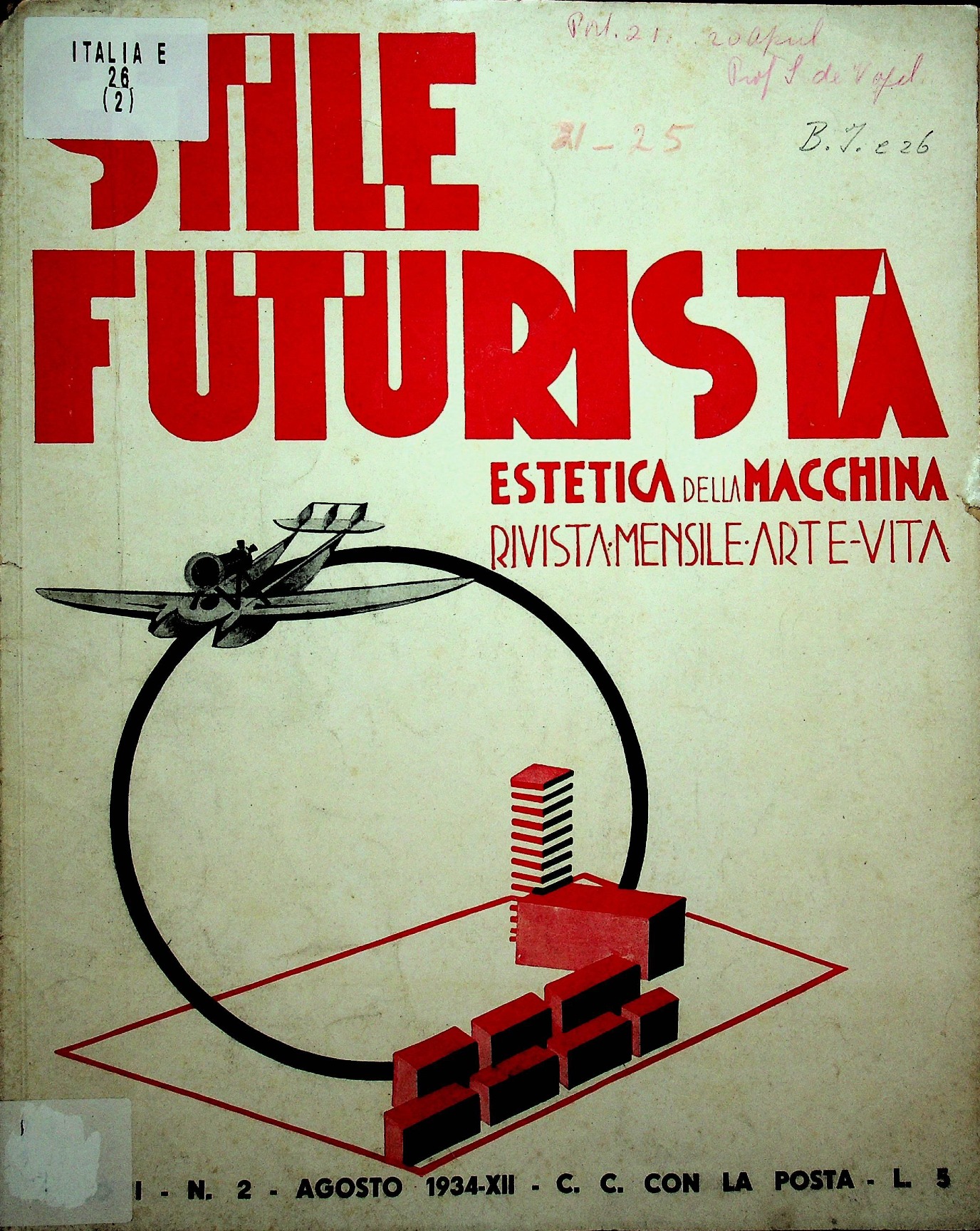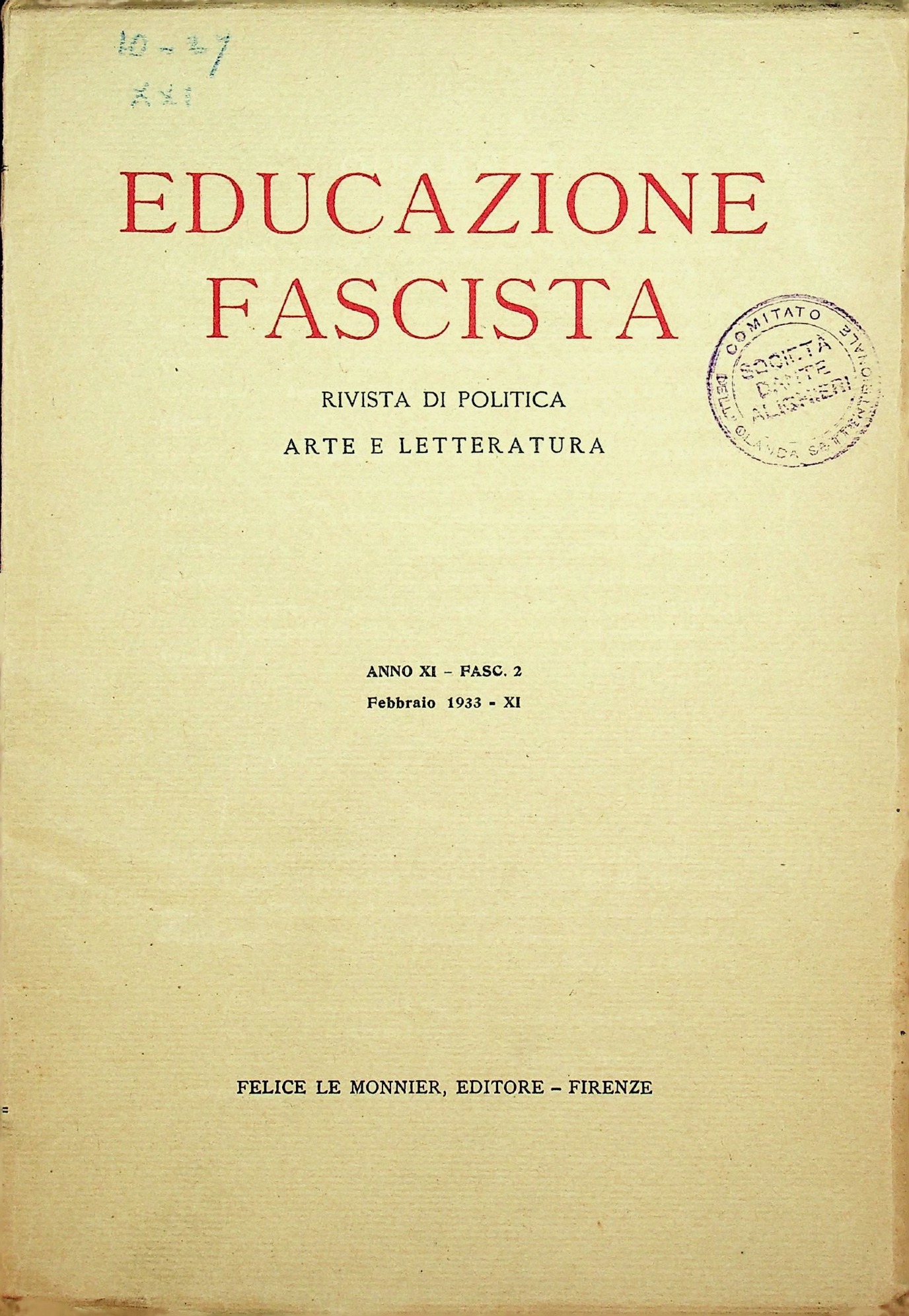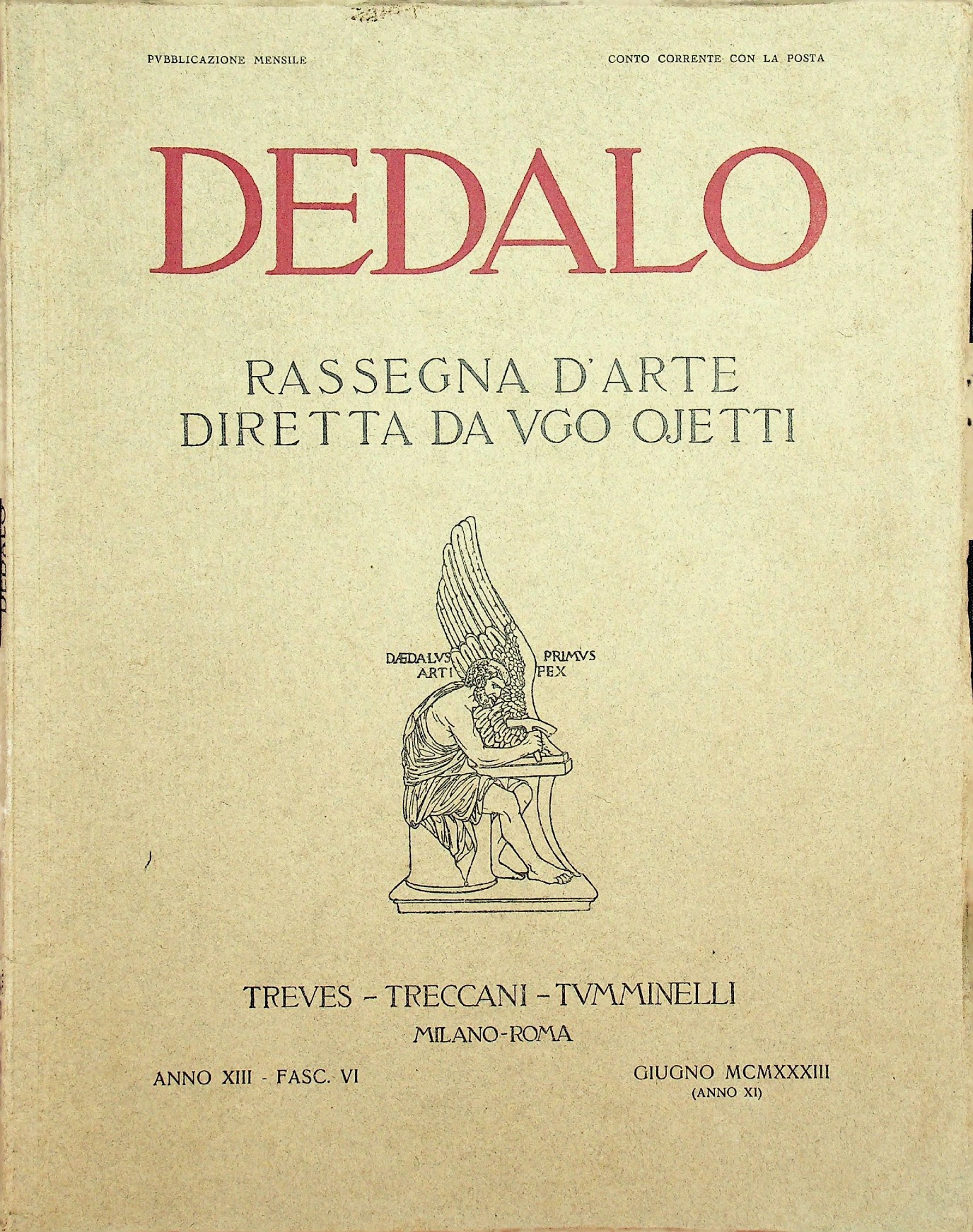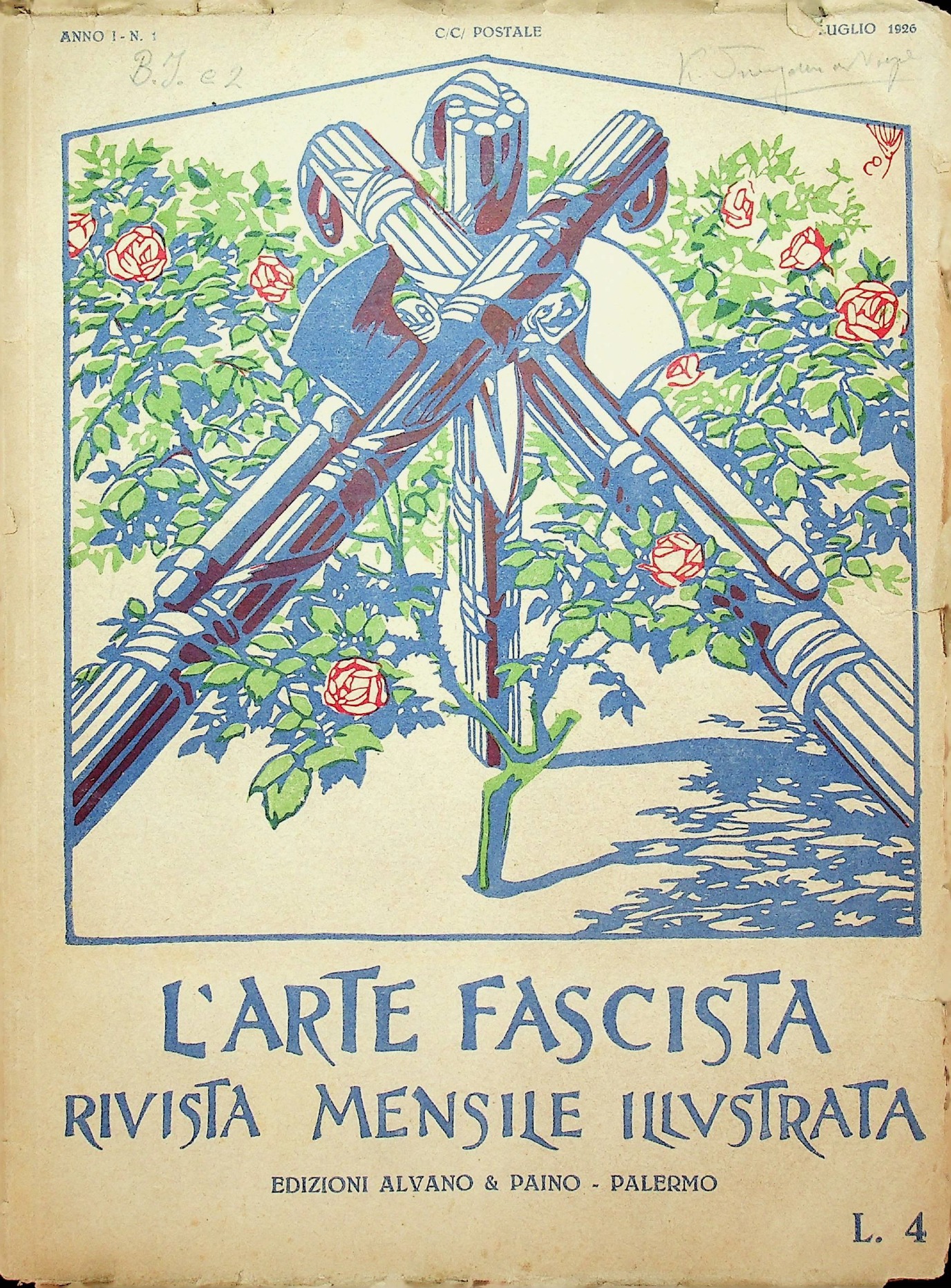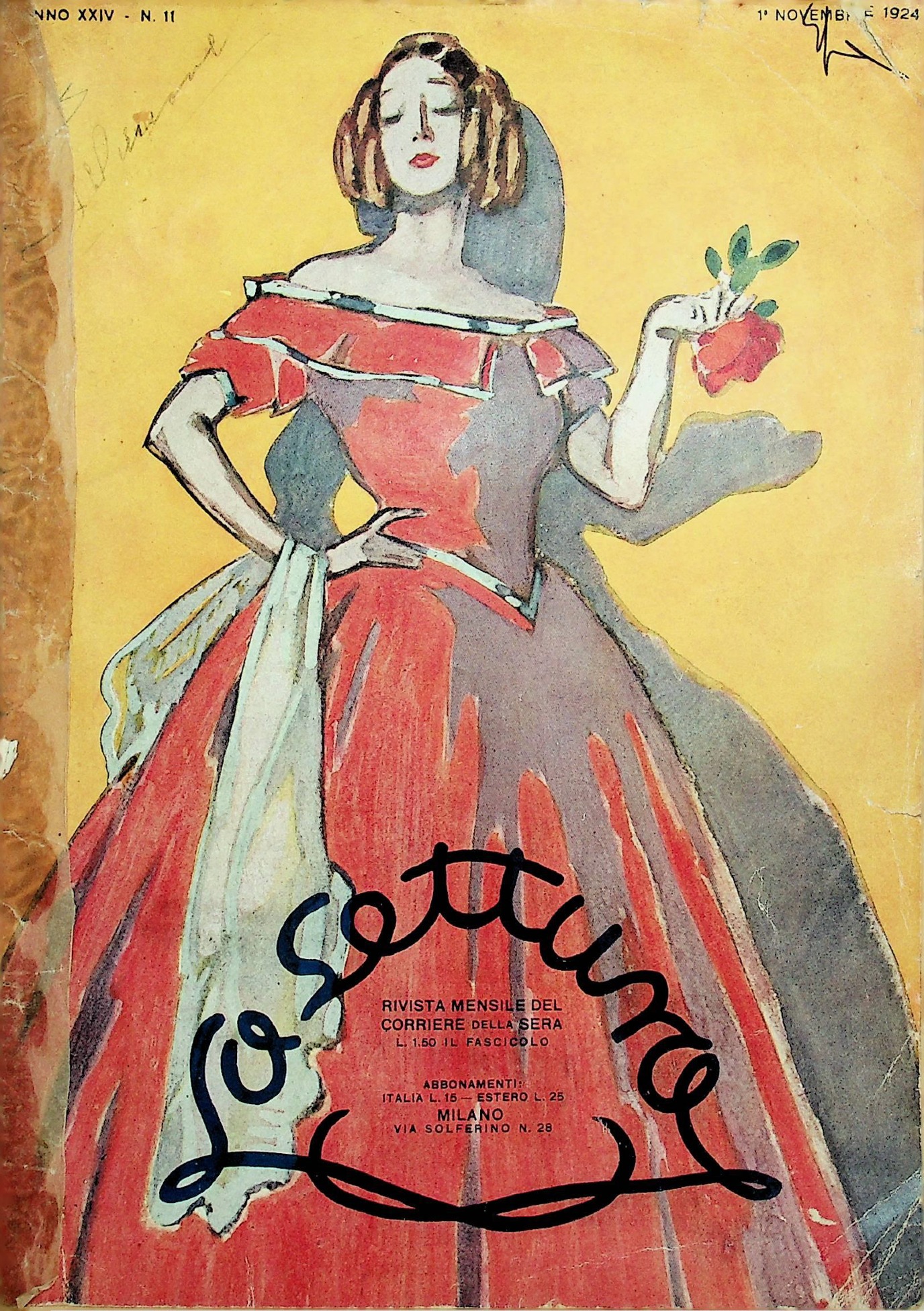Highlights from the Bibliotheca Italiana
Since 1961, the UB has hosted a collection of Italian books loaned by the Groningen committee of the Società Dante Alighieri. It contains approximately 900 books and a substantial collection of magazines and anthologies, particularly from the Italian fascist period. Through this unique collection of fascist magazines, bibliographic and critical journals, political writings, and periodicals, we can clearly witness how fascist ideology shaped the cultural climate in Italy in the 1920s and 1930s. A few examples will show the diversity of this collection.
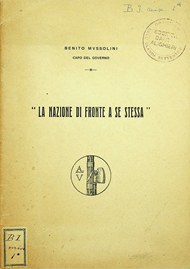
Benito Mussolini
In the Library’s strong room in the Special Collections Department, a copy of Benito Mussolini’s La Nazione di Fronte a Se Stessa is preserved, which contains a published version of the speech of the Ascension (dell’ Ascensione). The speech was held by Mussolini as the new Head of government on Ascension Day in 1927 (May 26).
In this speech, Mussolini covered topics from birth rate and maternity to the ‘defense of the race’, the fight against anti-fascism, and the ‘grandiosity of Italy’. With this speech, he spoke of his ambitions for Italy to become an empire. He wanted to create a new type of Italian man – l’italiano guerriero or 'Italian warrior' – and raise the Italian nation to an empire. To achieve this, he wanted the population to increase, to control family nuclei, and to impose standards on motherhood. In Mussolini’s view, families had to be numerous and women were meant to be compliant bearers of children and caregivers. Men who would not comply with conjugal sexual activities, or even opposed marriage, were considered deserters.
An interesting aspect of this publication is that it is the only one I have encountered in my research to have annotations in the margins. While the identity of the original owner is unknown, these annotations demonstrate that he or she was an avid supporter of Mussolini’s fascism:
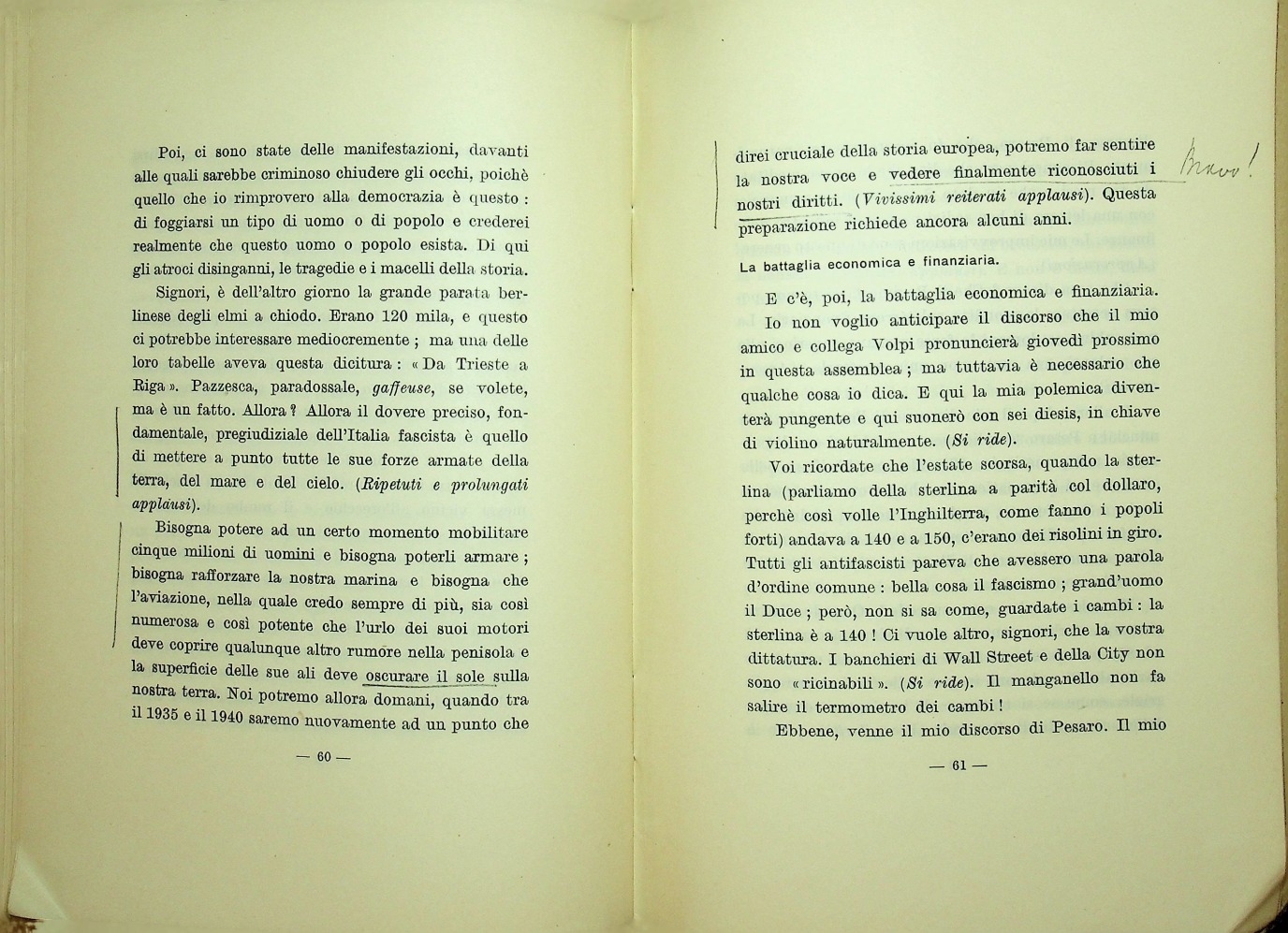
Fascist Periodicals
The Bibliotheca Italiana also contains examples of periodicals and magazines from the fascist period. In the next section of this exhibition, I will delve deeper into one of these, i.e. the Critica Fascista.
| Last modified: | 12 July 2024 11.49 a.m. |


